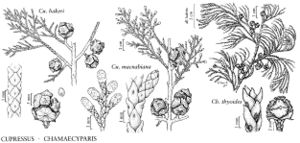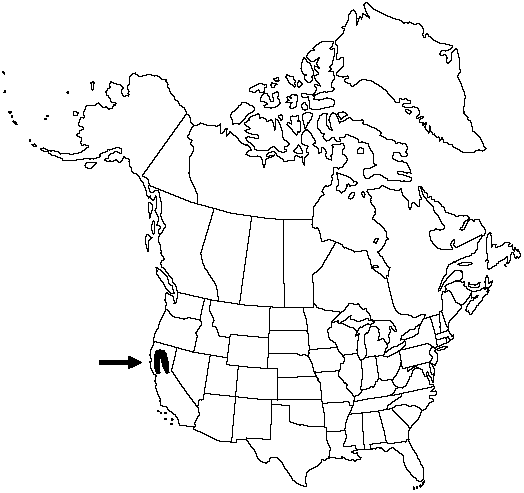Difference between revisions of "Cupressus macnabiana"
Edinburgh New Philos. J. ser. 2, 1: 293, plate 11. 1855.
imported>Volume Importer |
imported>Volume Importer |
||
| Line 52: | Line 52: | ||
|publication year=1855 | |publication year=1855 | ||
|special status=Illustrated;Endemic | |special status=Illustrated;Endemic | ||
| − | |source xml=https:// | + | |source xml=https://bitbucket.org/aafc-mbb/fna-data-curation/src/2e0870ddd59836b60bcf96646a41e87ea5a5943a/coarse_grained_fna_xml/V2/V2_131.xml |
|genus=Cupressus | |genus=Cupressus | ||
|species=Cupressus macnabiana | |species=Cupressus macnabiana | ||
Latest revision as of 20:21, 5 November 2020
Shrubby trees to 12 m; crown broadly conical, dense. Bark rough, furrowed, fibrous. Branchlets comblike, 0.5–1 mm diam. Leaves with conspicuous, pitlike, abaxial gland that produces drop of resin, sometimes glaucous. Pollen cones 2–3 × 2 mm; pollen sacs 3–5. Seed cones globose, mostly 1.5–2.5 cm, brown or gray, not glaucous; scales 3–4 pairs, smooth except for erect conic umbos, 2–4 mm. Seeds 2–5 mm, light to medium brown, sometimes slightly glaucous.
Habitat: Chaparral and foothill woodland, often on serpentine
Elevation: 300–850 m
Discussion
In the inner north Coast Ranges Cupressus macnabiana and C. sargentii produce the only known natural hybrids in Cupressus (L. Lawrence et al. 1975).
Selected References
None.
Lower Taxa
None.

